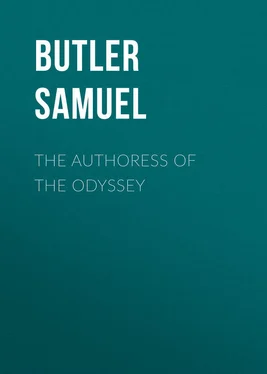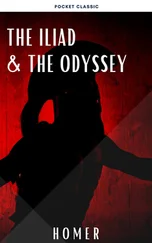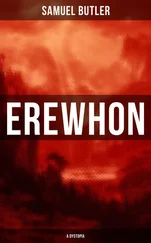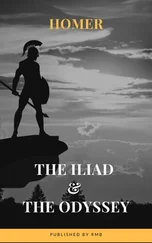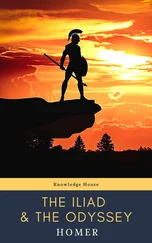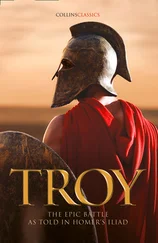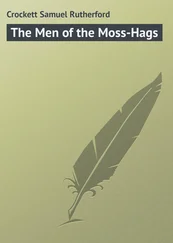Samuel Butler - The Authoress of the Odyssey
Здесь есть возможность читать онлайн «Samuel Butler - The Authoress of the Odyssey» — ознакомительный отрывок электронной книги совершенно бесплатно, а после прочтения отрывка купить полную версию. В некоторых случаях можно слушать аудио, скачать через торрент в формате fb2 и присутствует краткое содержание. Жанр: foreign_antique, foreign_prose, на английском языке. Описание произведения, (предисловие) а так же отзывы посетителей доступны на портале библиотеки ЛибКат.
- Название:The Authoress of the Odyssey
- Автор:
- Жанр:
- Год:неизвестен
- ISBN:нет данных
- Рейтинг книги:5 / 5. Голосов: 1
-
Избранное:Добавить в избранное
- Отзывы:
-
Ваша оценка:
- 100
- 1
- 2
- 3
- 4
- 5
The Authoress of the Odyssey: краткое содержание, описание и аннотация
Предлагаем к чтению аннотацию, описание, краткое содержание или предисловие (зависит от того, что написал сам автор книги «The Authoress of the Odyssey»). Если вы не нашли необходимую информацию о книге — напишите в комментариях, мы постараемся отыскать её.
The Authoress of the Odyssey — читать онлайн ознакомительный отрывок
Ниже представлен текст книги, разбитый по страницам. Система сохранения места последней прочитанной страницы, позволяет с удобством читать онлайн бесплатно книгу «The Authoress of the Odyssey», без необходимости каждый раз заново искать на чём Вы остановились. Поставьте закладку, и сможете в любой момент перейти на страницу, на которой закончили чтение.
Интервал:
Закладка:
( c ) The illustration of the coin which shows the design of the brooch of Ulysses is now given on a separate page, whereas formerly it was in the text, therefore the pagination is thrown out from page 227 until the end of the chapter, page 231. Doubt has recently been cast upon the accuracy of the statement on pp. 226-7, that this coin certainly belongs to the Eryx and Segesta group.
( d ) Some of the headlines have been shortened because of the reduction in the size of the page, and here advantage has been taken of various corrections of and additions to the headlines and shoulder-notes made by Butler in his own copies of the two books.
( e ) For the most part each of the illustrations now occupies a page, whereas in the original editions they generally appeared two on one page. It has been necessary to reduce the plan of the House of Ulysses.
On page 31 this note occurs: "Scheria means Jutland-a piece of land jutting out into the sea." Butler afterwards found that Jutland means the land of the Jutes, and has nothing to do with jutting. A note to this effect is in The Notebooks of Samuel Butler , p. 350.
On page 153 Butler says: "No great poet would compare his hero to a paunch full of blood and fat cooking before the fire (xx, 24-28)." This passage is not given in the abridged "Story of the Odyssey" at the beginning of the book, but in Butler's Translation it occurs in these words:
"Thus he chided with his heart, and checked it into endurance, but he tossed about as one who turns a paunch full of blood and fat in front of a hot fire, doing it first on one side then on the other, that he may get it cooked as soon as possible; even so did he turn himself about from side to side, thinking all the time how, single-handed as he was, he should contrive to kill so large a body of men as the wicked suitors."
It looks as though in the interval between the publication of The Authoress (1897) and of the Translation (1900) Butler had changed his mind; for in the first case the comparison is between Ulysses and a paunch full, etc., and in the second it is between Ulysses and a man who turns a paunch full, etc. The second comparison is perhaps one which a great poet might make.
In seeing the works through the press I have had the invaluable assistance of Mr. A. T. Bartholomew of the University Library, Cambridge, and of Mr. Donald S. Robertson, Fellow of Trinity College, Cambridge. To both these friends I give my most cordial thanks for the care and skill exercised by them. Mr. Robertson has found time for the labour of checking and correcting all the quotations from and references to the "Iliad" and "Odyssey," and I believe that it could not have been better performed. It was, I know, a pleasure for him; and it would have been a pleasure also for Butler if he could have known that his work was being shepherded by the son of his old friend, Mr. H. R. Robertson, who more than a half a century ago was a fellow-student with him at Cary's School of Art in Streatham Street, Bloomsbury.
HENRY FESTING JONES.120 Maida Vale, W.9.
4th December, 1921.
CHAPTER I
IMPORTANCE OF THE ENQUIRY – THE STEPS WHEREBY I WAS LED TO MY CONCLUSIONS – THE MULTITUDE OF EARLY GREEK POETESSES REMOVES ANY À PRIORI DIFFICULTY – THE MUSES AND MINERVA AS HEADS OF LITERATURE – MAN, RATHER THAN WOMAN, THE INTERLOPER
If the questions whether the Odyssey was written by a man or a woman, and whether or no it is of exclusively Sicilian origin, were pregnant with no larger issues than the determination of the sex and abode of the writer, it might be enough merely to suggest the answers and refer the reader to the work itself. Obviously, however, they have an important bearing on the whole Homeric controversy; for if we find a woman's hand omnipresent throughout the Odyssey , and if we also find so large a number of local details, taken so exclusively and so faithfully from a single Sicilian town as to warrant the belief that the writer must have lived and written there, the presumption seems irresistible that the poem was written by a single person. For there can hardly have been more than one woman in the same place able to write such – and such homogeneous – poetry as we find throughout the Odyssey .
Many questions will become thus simplified. Among others we can limit the date of the poem to the lifetime of a single person, and if we find, as I believe we shall, that this person in all probability flourished, roughly between 1050 and 1000 B.C., if, moreover, we can show, as we assuredly can, that she had the Iliad before her much as we have it now, quoting, consciously or unconsciously, as freely from the most suspected parts as from those that are admittedly Homer's, we shall have done much towards settling the question whether the Iliad also is by one hand or by many.
Not that this question ought to want much settling. The theory that the Iliad and Odyssey were written each of them by various hands, and pieced together in various centuries by various editors, is not one which it is easy to treat respectfully. It does not rest on the well established case of any other poem so constructed; literature furnishes us with no poem whose genesis is known to have been such as that which we are asked to foist upon the Iliad and Odyssey . The theory is founded on a supposition as to the date when writing became possible, which has long since been shown to be untenable; not only does it rest on no external evidence, but it flies in the face of what little external evidence we have. Based on a base that has been cut from under it, it has been sustained by arguments which have never succeeded in leading two scholars to the same conclusions, and which are of that character which will lead any one to any conclusion however preposterous, which he may have made up his mind to consider himself as having established. A writer in the Spectator of Jan. 2, 1892, whose name I do not know, concluded an article by saying,
That the finest poem of the world was created out of the contributions of a multitude of poets revolts all our literary instincts.
Of course it does, but the Wolfian heresy, more or less modified, is still so generally accepted both on the continent and in England that it will not be easy to exterminate it.
Easy or no this is a task well worth attempting, for Wolf's theory has been pregnant of harm in more ways than are immediately apparent. Who would have thought of attacking Shakspeare's existence – for if Shakspeare did not write his plays he is no longer Shakspeare – unless men's minds had been unsettled by Wolf's virtual denial of Homer's? Who would have reascribed picture after picture in half the galleries of Europe, often wantonly, and sometimes in defiance of the clearest evidence, if the unsettling of questions concerning authorship had not been found to be an easy road to reputation as a critic? Nor does there appear to be any end to it, for each succeeding generation seems bent on trying to surpass the recklessness of its predecessor.
And more than this, the following pages will read a lesson of another kind, which I will leave the reader to guess at, to men whom I will not name, but some of whom he may perhaps know, for there are many of them. Indeed I have sometimes thought that the sharpness of this lesson may be a more useful service than either the establishment of the points which I have set myself to prove, or the dispelling of the nightmares of Homeric extravagance which German professors have evolved out of their own inner consciousness.
Such language may be held to come ill from one who is setting himself to maintain two such seeming paradoxes as the feminine authorship, and Sicilian origin, of the Odyssey . One such shock would be bad enough, but two, and each so far-reaching, are intolerable. I feel this, and am oppressed by it. When I look back on the record of Iliadic and Odyssean controversy for nearly 2500 years, and reflect that it is, I may say, dead against me; when I reflect also upon the complexity of academic interests, not to mention the commercial interests vested in well-known school books and so-called education – how can I be other than dismayed at the magnitude, presumption, and indeed utter hopelessness, of the task I have undertaken?
Читать дальшеИнтервал:
Закладка:
Похожие книги на «The Authoress of the Odyssey»
Представляем Вашему вниманию похожие книги на «The Authoress of the Odyssey» списком для выбора. Мы отобрали схожую по названию и смыслу литературу в надежде предоставить читателям больше вариантов отыскать новые, интересные, ещё непрочитанные произведения.
Обсуждение, отзывы о книге «The Authoress of the Odyssey» и просто собственные мнения читателей. Оставьте ваши комментарии, напишите, что Вы думаете о произведении, его смысле или главных героях. Укажите что конкретно понравилось, а что нет, и почему Вы так считаете.
